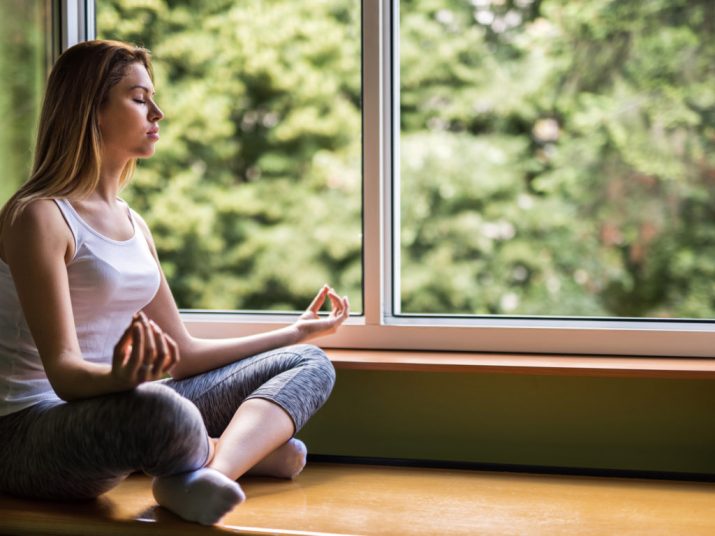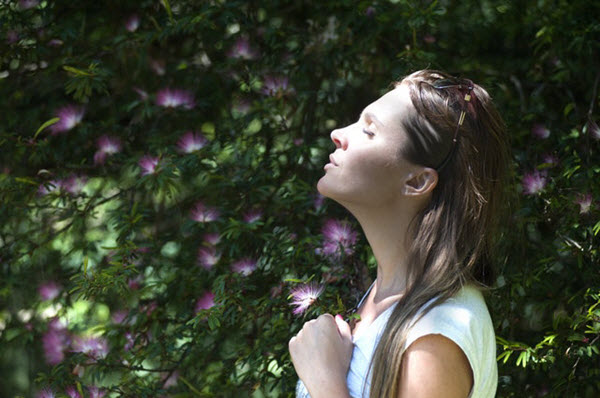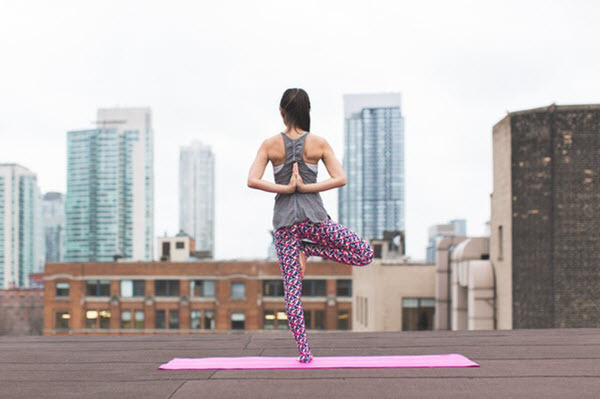11 Really Effective Relaxation Techniques to Relieve Anxiety
By PhDify
June 11, 2018 • Fact checked by Dumb Little Man

No one can evade stress completely but you may resist it by mastering a relaxation method. Relaxation techniques can decrease the level of anxiety and bring your body into a state of equilibrium.
Apart from producing a balancing effect, relaxation also magnifies energy and concentration. It helps overcome illnesses, alleviates pain and enhances problem-solving abilities and motivation.
By following the relaxation techniques to relieve anxiety below, you'll be able to get all those benefits and more:
Breathing meditation

Deep respiration is a simple but powerful relaxation method. Using it, you focus on the so-called “cleansing of wind”.
The key to understanding the practice is to breathe only out of the peritoneum, capturing as much fresh air as possible. When you inhale deeply, you draw a lot of oxygen. The more of it you get, the less your tension and anxiety will be.
Breathing techniques are easy to do almost everywhere. You can combine it with aromatherapy or you can listen to music.
See Also: Benefits Of Meditation: How You Can Change Your Life In 10 Minutes
Rhythmical movements
Rhythmical movements are exercises for arms and legs. It can be running, walking, swimming, dancing, rowing or climbing. These movements are only efficient if they are used in conjunction with “full awareness”.
The latter requires full involvement into the present moment and focusing your consciousness on the sensations of your body. So, when you jog, try to concentrate on each step.
Progressive muscle relaxation
This is a process where you systematically strain and relax different muscle groups. With regular practice, you will gain in-depth knowledge of how tension and total relaxation are felt by the different parts of your body. This awareness will help you notice and counteract the first signs of muscle pressure which accompanies strain.
“Full awareness” meditation
Full awareness meditation is where you remain aware of your “short-term” experiences, both internal and external. Past memories and thoughts about the present and the future may provoke strain. By remaining calm at the moment, you can bring your nervous system into balance.
Visualization
Also known as controlled imagination, visualization is a special version of a conservative meditation that involves the use of all sensory organs.
For this , you should choose any environment you like and become its guest. It is essential that it maximally soothes you. It can be a tropical beach or a favorite place where you liked to stay when you were a kid. You can try the exercise in silence or when listening to music.
Yoga

Yoga refers to the series of movements and static poses accompanied by deep breathing. Besides reducing anxiety, it will help you increase flexibility, strength, coordination, and endurance.
If you practice it regularly, it will enhance your ability to remain relaxed even during stressful times. Since there's always the possibility of experiencing injuries, it is better to attend classes with a professional trainer.
See Also: Yoga and Health: From Better Mental Health To Improved Sleep Quality
Audible stimulation or music therapy
Depending on your personal preferences, sounds for relaxation may be based on natural phenomena like the wind, waves or rain. It can also be rhythmically monotonous noises with musical instruments.
Your other choices include classical, original and specially written musical compositions and instrumentals. You can also perform audible stimulation with voiced texts.
Tai Tzu
Tai Tzu is a series of slow, measured, and smooth movements aimed at concentrating, relaxing and stimulating conscious circulation of vital energy through the whole body. It is considered a safe way to eliminate stress for people of all ages and any physical fitness level.
Physiotherapy
A bath filled with warm water can help ease up stress. This method is effective because of the density of the liquid. It allows you to remove muscle tension, put pressure on soft tissues, help restore blood supply and improve lymph drainage.
Various methods of physiotherapy, such as pearl baths, hydromassage, toning showers, and Charcot's shower, are based on the properties of water. One of the new ways of unwinding – floating – is based on sensory deprivation.
In this method, a person goes inside a closed chamber where there are no sounds or visual stimuli. He is placed in a state of almost weightlessness due to the high density of salt water.
With good equipment, the chamber is a highly effective way of achieving maximum muscle and psycho-emotional relaxation.
Massage
A lot of techniques were originally based on Eastern spiritual and religious foundations. After a period of adaptation to the European culture, some esoteric components of the Chinese, Japanese, and Indian systems have been subjected to changes. As a result, corporal practices became the most popular today.
One of them is Qigong massage. It's performed by a specialist who reacts to the response of the patient's body.
Postisometric relaxation
Postisometric relaxation is based on the combination of an isometric load on the muscles and its subsequent inert stretching. This combination must be carried out 4 to 6 times, until the disappearance of painful feelings.
Contraindications to the technique include skin inflammation, poor health, headaches, pulmonary insufficiency, hypertension, vein thrombosis and cardiac arrhythmia.
In Conclusion
The best relaxation techniques to relieve anxiety will depend on your goals and personal preferences. But remember that the best way to start is to include them in your daily routine.
Of course, it's hard to find time in most people’s tight schedule but many of these techniques are easy to practice while doing other things. You could meditate on your way to work or while waiting for a meeting. You can apply “full awareness’ while you're playing with your dog, going to your car or climbing the stairs. The most important thing is the desire to do them and understanding their usefulness.
PhDify
Barbara Elliott is well-experienced writer and blogger at PhDify.com. She has been practicing yoga for ten years and has been teaching meditation for more than three years

